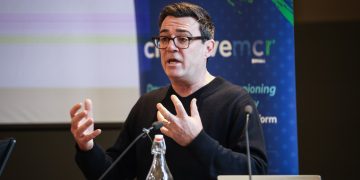
As hypertension silently affects millions globally, especially among young adults, the US-based Nigerian Benjamin Olaoluwa Akangbe is pioneering a new approach to chronic disease prevention. With a strong foundation in nursing and an MPH in Epidemiology, Akangbe’s work focuses on turning complex data into lifesaving health strategies.
In his most recent research, Akangbe spotlights how modifiable lifestyle factors—like smoking, poor diet, and low physical activity—are accelerating hypertension in adults aged 20–35. Using large public datasets and advanced statistical modeling, his work is redefining our understanding of chronic disease risk among youth. “Early adulthood is a missed opportunity in public health,” he says. “If we can intervene there, we can prevent years of suffering and billions in healthcare costs.”
Akangbe doesn’t stop at numbers. His work emphasizes the urgent need for integrated health education, community screening, and policy reform. He’s a vocal advocate for making health literacy and preventive care accessible at the grassroots level. His campaigns and volunteer work—from Nigeria Health Watch’s awareness initiatives to his current role as a research fellow in HIV and infectious disease—showcase a lifelong commitment to impact.
In parallel, Akangbe’s broader contributions to science—including co-authored studies on antibiotic resistance and aging—demonstrate a dedication to interdisciplinary innovation. Whether he’s analyzing mental health’s role in hypertension or developing policy guidance for infection control, his work centers around one goal: a healthier, more equitable future.
With expertise spanning chronic and infectious diseases, Akangbe is poised to influence health systems at both the local and global level. His message to policymakers and public health leaders is clear: prevention isn’t just possible—it’s imperative. Through science, advocacy, and policy, he is helping reshape the global health landscape.





























